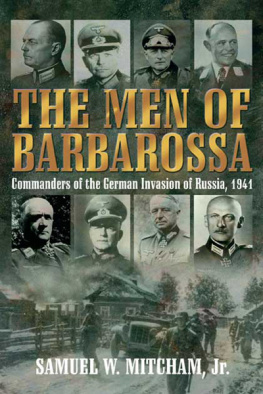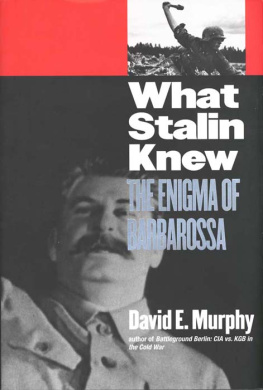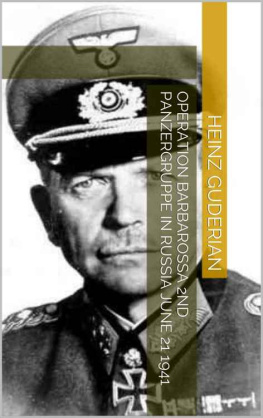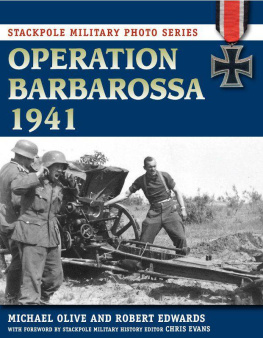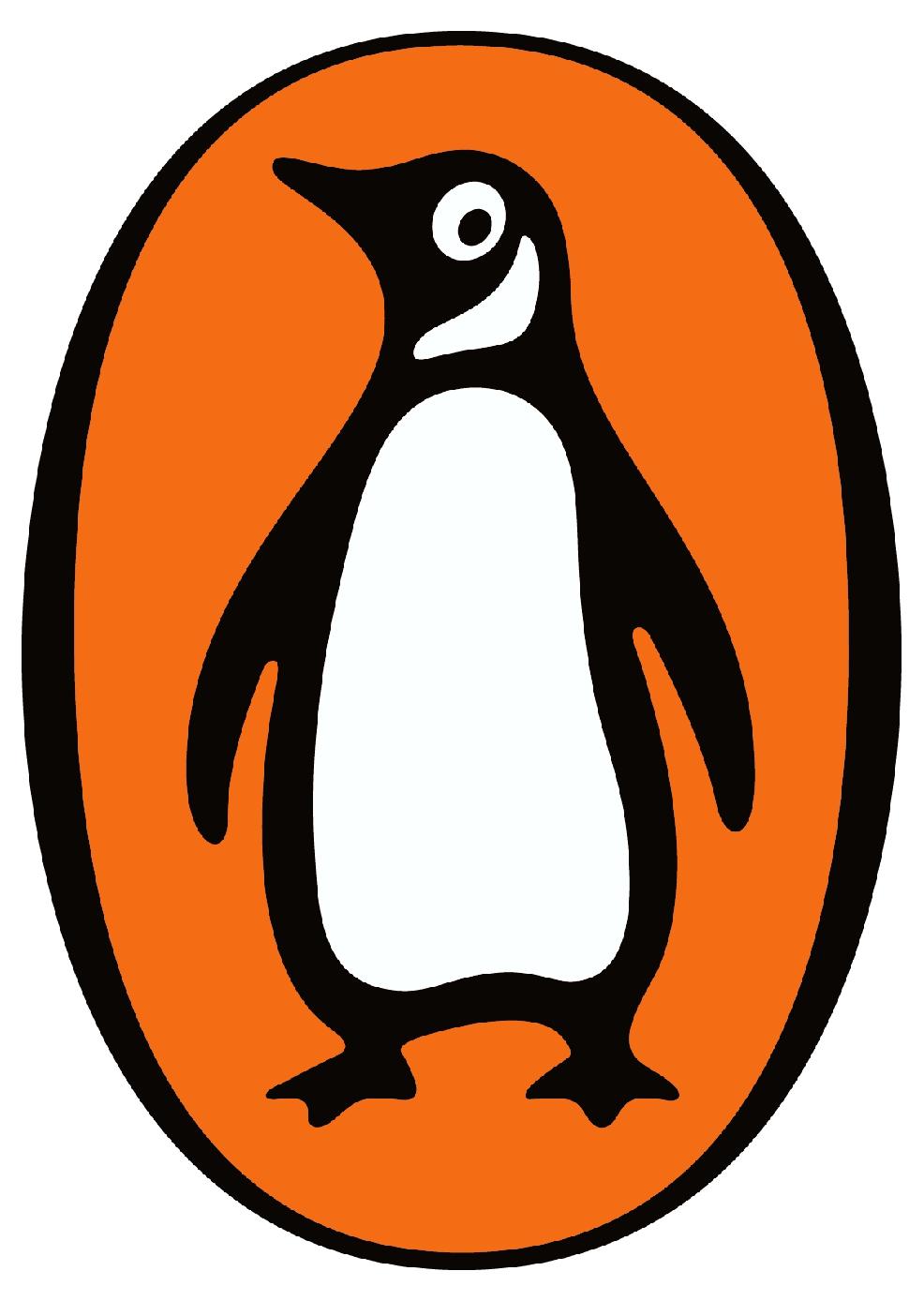Jonathan Dimbleby - Barbarossa: How Hitler Lost the War
Here you can read online Jonathan Dimbleby - Barbarossa: How Hitler Lost the War full text of the book (entire story) in english for free. Download pdf and epub, get meaning, cover and reviews about this ebook. City: New York, year: 2021, publisher: Penguin, genre: History. Description of the work, (preface) as well as reviews are available. Best literature library LitArk.com created for fans of good reading and offers a wide selection of genres:
Romance novel
Science fiction
Adventure
Detective
Science
History
Home and family
Prose
Art
Politics
Computer
Non-fiction
Religion
Business
Children
Humor
Choose a favorite category and find really read worthwhile books. Enjoy immersion in the world of imagination, feel the emotions of the characters or learn something new for yourself, make an fascinating discovery.
- Book:Barbarossa: How Hitler Lost the War
- Author:
- Publisher:Penguin
- Genre:
- Year:2021
- City:New York
- Rating:4 / 5
- Favourites:Add to favourites
- Your mark:
Barbarossa: How Hitler Lost the War: summary, description and annotation
We offer to read an annotation, description, summary or preface (depends on what the author of the book "Barbarossa: How Hitler Lost the War" wrote himself). If you haven't found the necessary information about the book — write in the comments, we will try to find it.
A SUNDAY TIMES TOP TEN BESTSELLER
With his customary literary flair and capacity to master and mobilize very many and varied sources, Jonathan Dimbleby gives us the best single-volume account of the Barbarossa campaign to date Andrew Roberts, author of Churchill: Walking with Destiny
Like a fast-moving juggernaut of horror, Dimblebys Barbarossa is a page-turning descent into Hell and back. Part warning, part fable, but all too true, this fresh and compelling account of Hitlers failed invasion of the Soviet Union should be on everyones reading list for 2021 Dr Amanda Foreman, author of A World on Fire
_______________________________
Operation Barbarossa, Hitlers invasion of Russia in June 1941, aimed at nothing less than a war of extermination to annihilate Soviet communism, liquidate the Jews and create Lebensraum for the German master race. But it led to the destruction of the Third Reich, and was cataclysmic for Germany with millions of men killed, wounded or registered as missing in action. It was this colossal mistake -- rather than any action in Western Europe -- that lost Hitler the Second World War.
Drawing on hitherto unseen archival material, including previously untranslated Russian sources, Jonathan Dimbleby puts Barbarossa in its proper place in history for the first time. From its origins in the ashes of the First World War to its impact on post-war Europe, and covering the military, political and diplomatic story from all sides, he paints a full and vivid picture of this monumental campaign whose full nature and impact has remained unexplored.
At the heart of the narrative, written in Dimblebys usual gripping style, are compelling descriptions of the leaders who made the crucial decisions, of the men and women who fought on the front lines, of the soldiers who committed heinous crimes on an unparalleled scale and of those who were killed when the Holocaust began. Hitlers fatal gamble had the most terrifying of consequences.
Written with authority and humanity, Barbarossa is a masterwork that transforms our understanding of the Second World War and of the twentieth century.
_______________________________
Superb. . . stays with you long after you have finished Henry Hemming, bestselling author of Our Man in New York
A chilling account of war at its worst Bear Grylls
Jonathan Dimbleby: author's other books
Who wrote Barbarossa: How Hitler Lost the War? Find out the surname, the name of the author of the book and a list of all author's works by series.

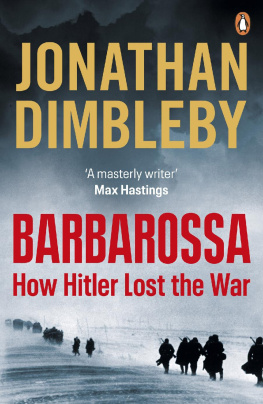

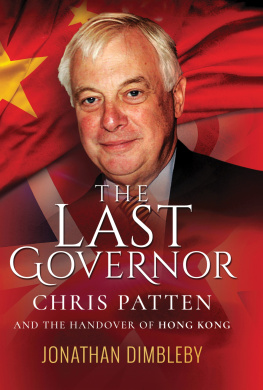
![Dzhonatan Dimblbi - Barbarossa: How Hitler Lost the War [calibre]](/uploads/posts/book/898152/thumbs/dzhonatan-dimblbi-barbarossa-how-hitler-lost-the.jpg)
